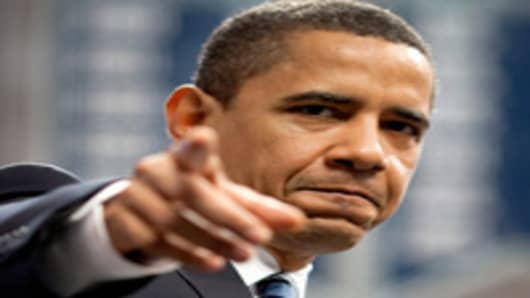Certainly, Obama inherited a mess—unemployment stood at 7.7 percent in January 2009; however, since then jobless ranks swelled 3 million and many others have quit looking altogether.
Massive bailouts for Wall Street banks, $787 billion in stimulus spending, health care reforms touted as jobs creating, and financial regulatory overhaul have disappointed.
Much stimulus money was squandered. Large grants to build green buildings don’t generate many new jobs except for a few architects, summer research grants for professors are even less effective, and subsidies for windmills and solar panels created lots of jobs in China.
Beijing requires most green energy projects to be sourced domestically. Without similar U.S. regulations, capacity and jobs to build solar panels and windmills locate in China.
The consequences of the undervalued yuan and Chinese protectionism have been brought to President Obama’s attention ad nauseum, yet he continues President Bush’s policy of quiet diplomacy and no significant results.
Wall Street banks received TARP and Federal Reserve assistance to improve balance sheets and recapitalize securities and derivatives trading, which generated record bonuses for 2009.
Meanwhile, Wall Street banks balked at reestablishing credit for regional banks, which remain burdened by too many toxic assets. Consequently, 230 regional banks have failed, and small and medium sized businesses cannot get adequate credit.
Financial reform legislation will little curtail big bank trading or require large financial institutions to open credit markets again to regional banks, and reforms will further tighten Wall Street’s chokehold on credit.
The nations 25 largest banks’ share of deposits has risen to 59 percent, and the House-Senate bank reform deal, when announced, caused a 3 percent increase in share prices for J.P. Morgan , Goldman Sachs and Morgan Stanley . Big companies, which offshore jobs, will have easy access to credit, but small and medium sized businesses, which create most jobs in America, will remain starved for credit.
President Obama’s health care reforms are pushing up health insurance premiums, compelling large companies to take capital charges, and raising labor costs—all deter businesses from hiring.
The specter of proposed new energy taxes and limits on oil and gas development has similar effects.
Businesses need customers and capital to invest and create jobs, and private demand growing at less than 2 percent a year and troubles at regional banks remain huge problems.
The trade deficit—in particular, imports of oil and the imbalance with China—cuts a huge hole in demand for U.S. goods and services. Without addressing oil and China, other efforts to create jobs will prove futile.
Detroit has the technology to build much more efficient gasoline-powered vehicles now, and a shift in national policy to rapidly build these would reduce oil imports and create many jobs.
China’s undervalued currency that makes its products artificially cheap and deceivingly competitive on U.S. store shelves, and its promise of new flexibility on the yuan has not translated into meaningful revaluation.
Instead of complimenting China for its hollow promises, President Obama should implement comprehensive policies to counter Chinese abuses of free trade. That would begin with a tax on dollar-yuan conversions to raise prices of Chinese imports to their true cost to the U.S. economy.
Remaining TARP funds should be used to create a Savings and Loan Crisis era Resolution Trust that could relieve regional banks of troubled loans, earn a profit for taxpayers, and give small and medium sized businesses adequate bank credit again.
Those initiatives would disappoint Ivy League intellectuals and New York bankers advising the White House, but it is high time President Obama addressed the world as he finds it, not as he believes it should be.
______________________
Peter Morici is a professor at the Smith School of Business, University of Maryland, and former Chief Economist at the U.S. International Trade Commission.


